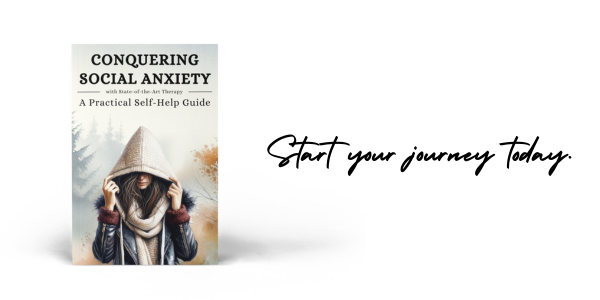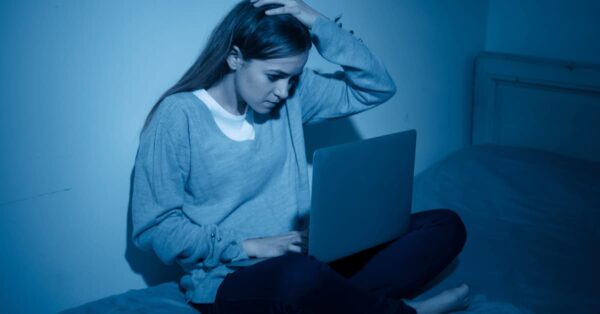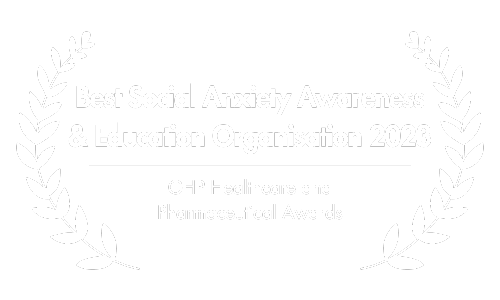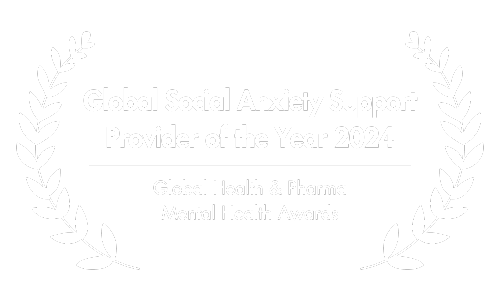Respawn with Confidence: A Gamer’s Guide to Overcome Social Anxiety
This article contains a recommendation for an online therapy provider that helps with internet gaming disorder and social anxiety. If you purchase product services through this link, you will receive a significant discount and we will receive a commission.
In today’s world, online gaming is more than just a hobby; it’s a way for people to escape into different realities, make friends, and achieve goals that feel rewarding.
But for some, especially those dealing with social anxiety, this escape can have a flip side.
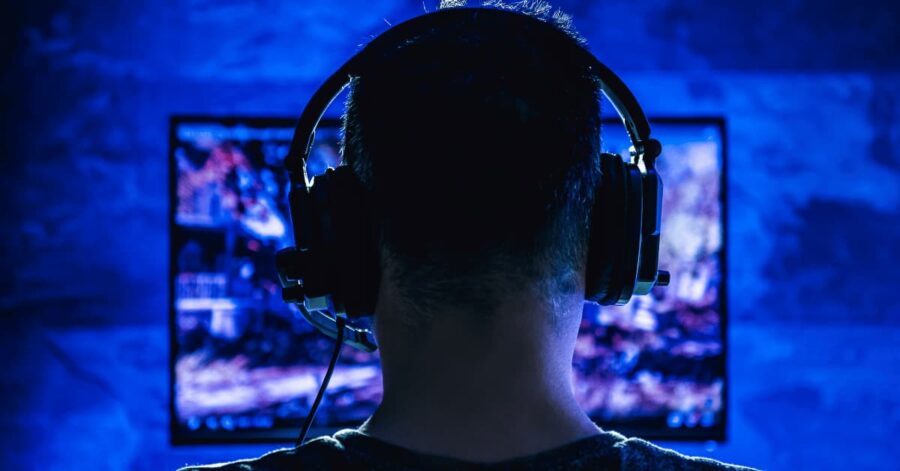
Social anxiety is a real struggle for many, making social interactions incredibly stressful and leading some to avoid these situations altogether (American Psychiatric Association, 2013).
At the same time, Internet Gaming Disorder (IGD) is becoming recognized as a serious issue, where gaming takes over life in unhealthy ways (World Health Organization, 2019).
When these two issues meet, it creates a complex situation. On one hand, gaming can be a relief from the loneliness and stress of social anxiety. On the other, it can make things worse by creating a cycle of avoidance and even addiction.
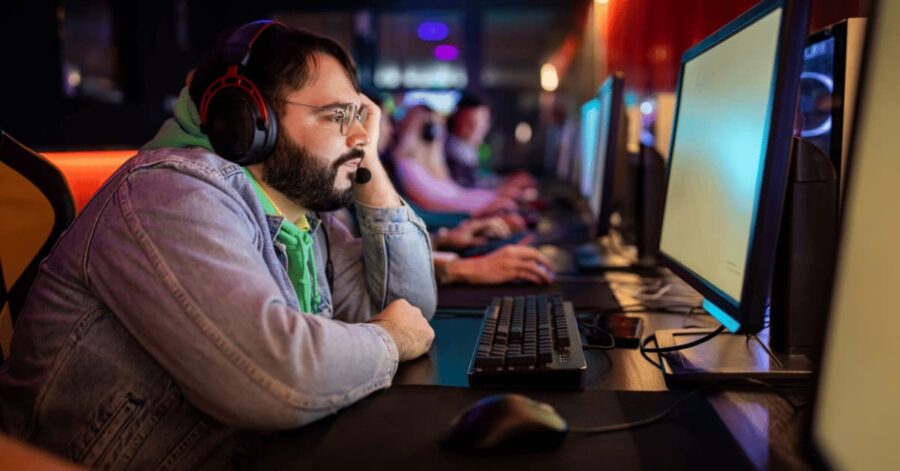
We’re here to unpack this complicated relationship between gaming and social anxiety.
By looking at the latest research and real-life stories, we’ll explore how gaming affects those with social anxiety, the dangers of gaming too much, and what can be done to find a healthier balance.
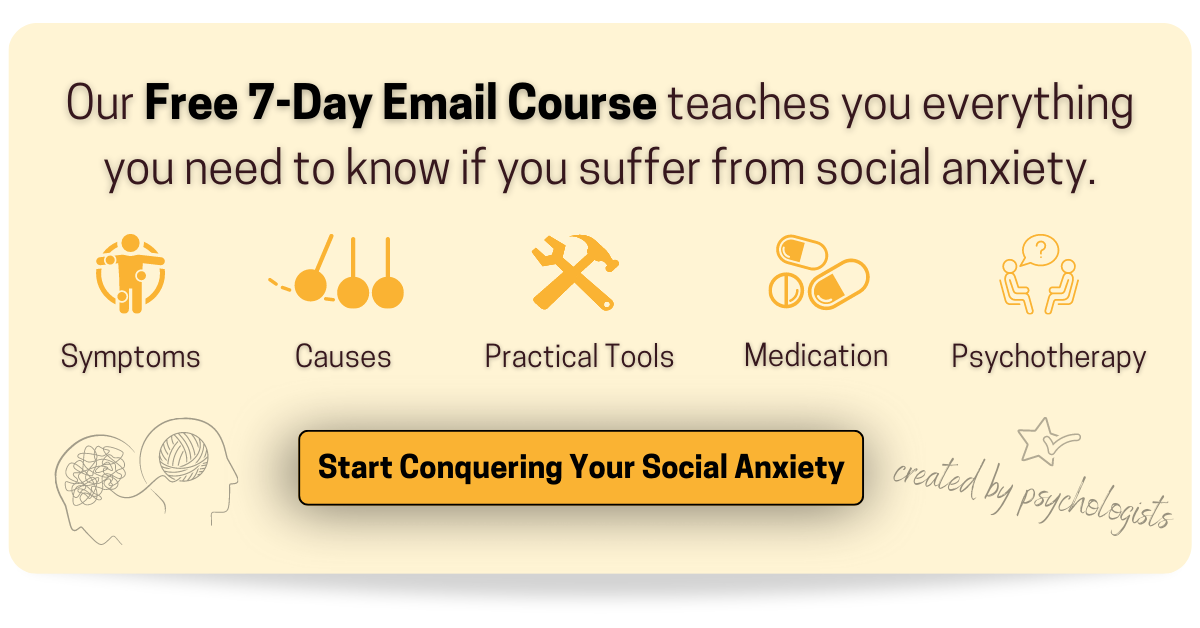
A. Understanding Social Anxiety and Internet Gaming Disorder
Social Anxiety is a condition that goes beyond simple shyness. It’s an intense fear of social situations where individuals feel scrutinized, judged, or embarrassed.
This fear can be so overwhelming that it leads to avoidance of social interactions, impacting one’s ability to work, attend school, or maintain relationships.
Imagine feeling a wave of panic at the thought of speaking in a meeting or worrying for days about an upcoming social event. That’s the reality for someone with social anxiety.
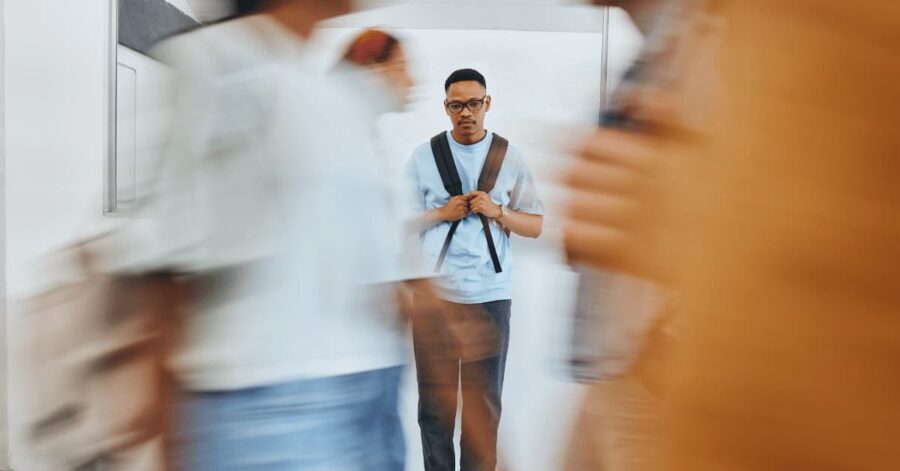
Internet Gaming Disorder (IGD) is a newer term that’s been gaining attention. It describes a situation where online gaming becomes compulsive to the point of interfering with daily life.
This isn’t about enjoying video games as a hobby; it’s when gaming takes precedence over responsibilities, relationships, and health.
IGD is characterized by an inability to control gaming habits, increasing priority given to gaming, and continuation or escalation of gaming despite negative consequences.
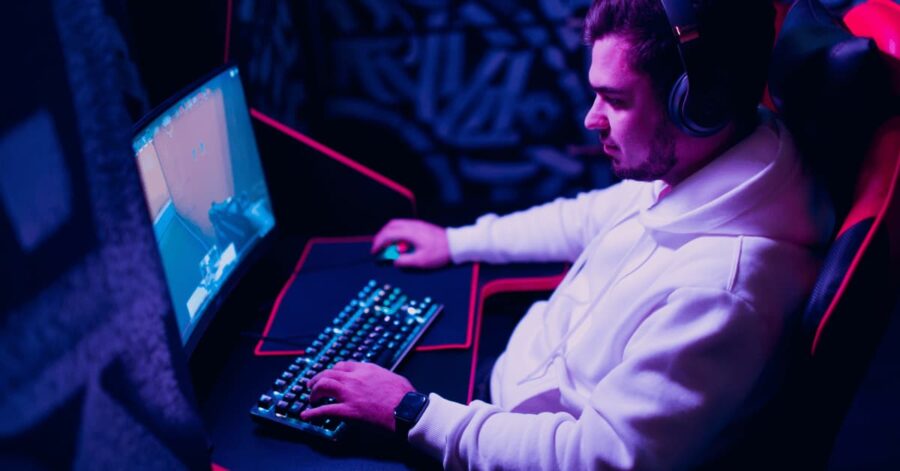
The link between social anxiety and IGD can be complex.
For many with social anxiety, online games offer a refuge. They provide a controlled environment where social interactions can happen behind the safety of a screen, reducing the immediate stress of face-to-face encounters.
Games offer clear goals and rewards, which can be particularly appealing to someone who feels out of place in the social world.
However, this refuge can quickly become a double-edged sword.

While gaming can offer temporary relief from social anxiety, it can also lead to isolation.
As time spent gaming increases, opportunities for real-world interactions and the development of social skills decrease.
This can create a vicious cycle: as social anxiety worsens, the more one might retreat into the gaming world, further exacerbating IGD.
B. The Dual Impact of Online Gaming on Social Anxiety
Let’s take a closer look at the paradoxical nature of online gaming in the context of social anxiety.
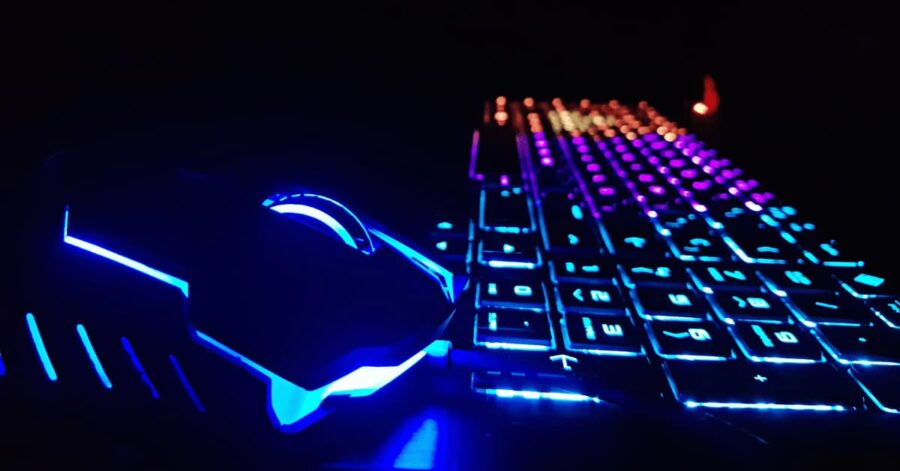
The Positive Aspects of Online Gaming
Community and Connection
For many with social anxiety, online games provide a platform for socialization without the intense pressure of face-to-face interactions.
These virtual environments offer a sense of belonging and community, where individuals can form meaningful relationships with others who share similar interests.
Skill Development and Confidence Building
Online gaming can also serve as a practice ground for social skills and confidence building.
Engaging in cooperative or team-based games requires communication and strategy, allowing individuals to develop these skills in a less threatening environment.
The achievements and progress within games can elevate self-esteem, often diminished in individuals with social anxiety. Similarly, these virtual victories can enhance self-efficacy, reinforcing the belief in one’s ability to navigate life’s challenges successfully.
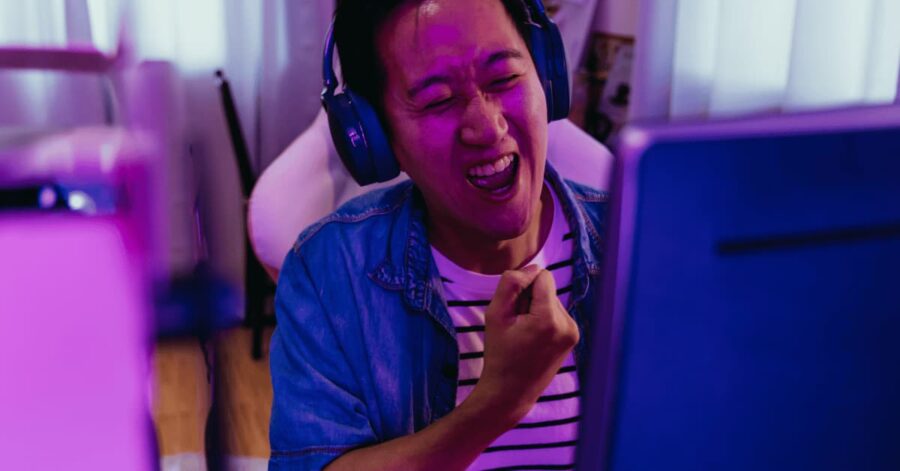
The Negative Consequences of Excessive Gaming
Isolation and Neglect of Real-Life Relationships
In a clinical case study documented by Nasution et al. (2019), Mr. A, a 28-year-old man, found himself deeply ensnared in the virtual world of online gaming.
What initially served as a refuge gradually morphed into a prison of isolation. His engagement in online gaming began to consume an inordinate amount of his time and mental energy, pulling him further away from real-world interactions and relationships.
This shift not only isolated Mr. A from his social circles but also strained his connections with family and friends, highlighting a common negative consequence of excessive gaming.
Neglect of Self-Care and Hygiene
A particularly striking aspect of Mr. A’s descent into internet gaming disorder was the severe neglect of his personal hygiene, a fundamental aspect of self-care.
His obsession with gaming led to significant sleep disturbances, as he sacrificed rest to gain more screen time, further exacerbating his neglect of personal well-being.
This example illustrates how excessive gaming can lead to a disregard for one’s physical health and daily routines.
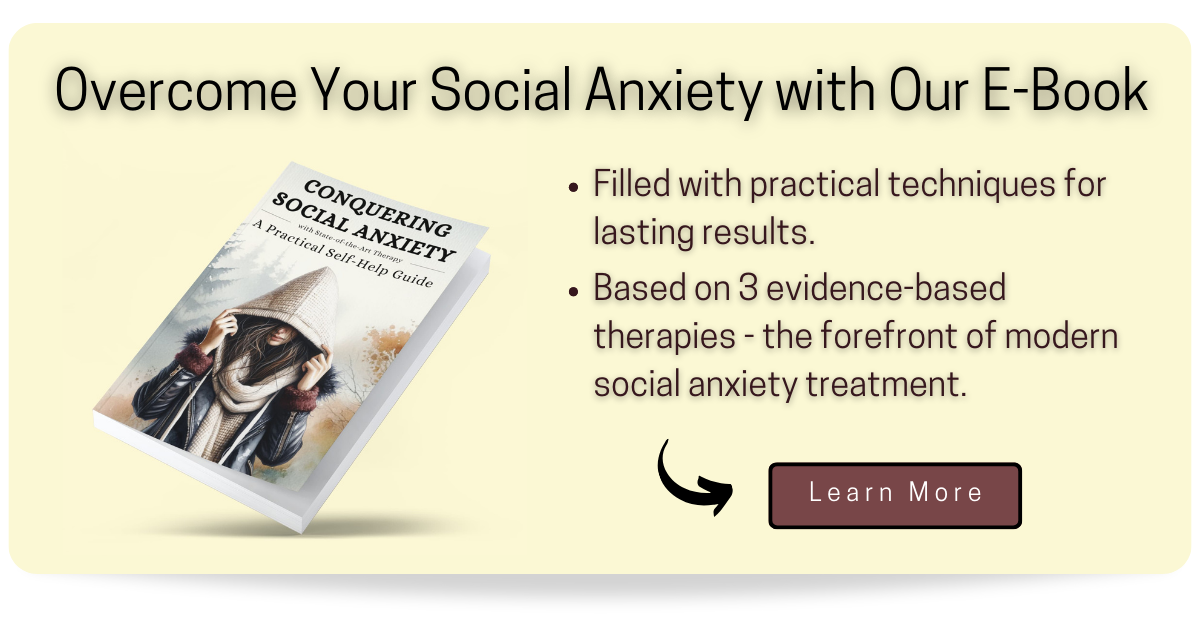
Worsening Social Anxiety and Dependency
The case of Mr. A also sheds light on how prolonged periods spent in virtual worlds can diminish the time available for real-world interactions, potentially worsening conditions like social anxiety.
The sense of achievement and community that games provide can become a crutch, leading to a dependency that makes engaging in real-life social situations seem even more daunting.
Research by Wang et al. (2022) supports this observation, highlighting how negative emotions such as depression and stress are associated with internet gaming disorder through the fear of missing out (FoMO).
This suggests that the cycle of social anxiety and gaming can be fueled by underlying emotional distress, creating a challenging loop to break.
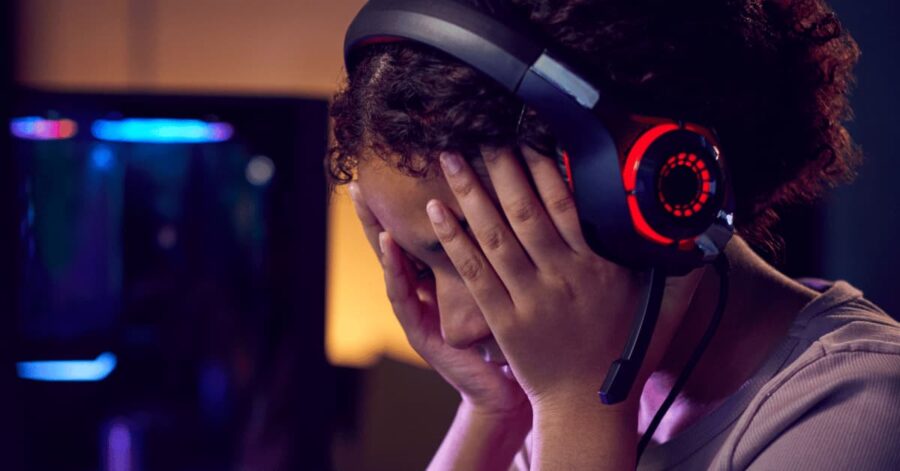
Impact on Physical Health
Excessive gaming, as illustrated by Mr. A’s case, often leads to a sedentary lifestyle that can significantly deteriorate one’s physical health.
The earlier mentioned neglect of self-care and hygiene may indicate a wider neglect of health, encompassing poor dietary habits and insufficient physical activity.
This sedentary behavior increases the risk of obesity, cardiovascular diseases, and musculoskeletal problems due to prolonged sitting.
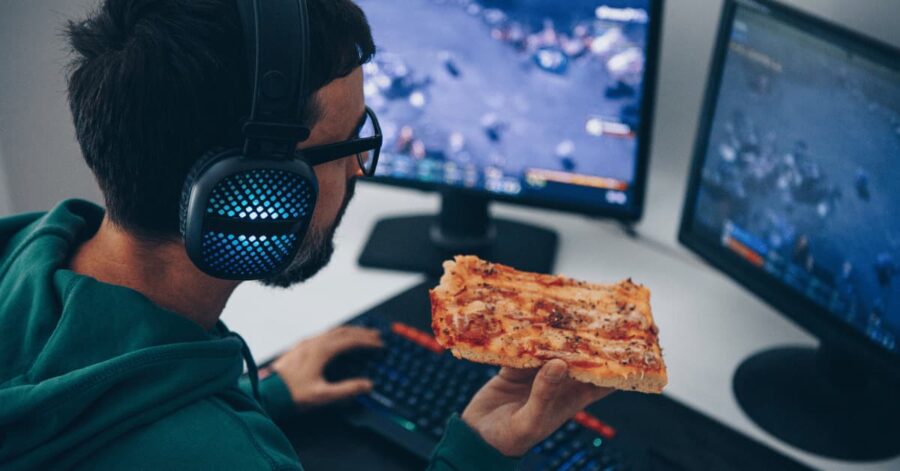
Academic and Occupational Decline
The compulsive nature of internet gaming disorder can also have profound implications for an individual’s academic and occupational performance.
In cases like Mr. A’s, the overwhelming focus on gaming likely diverts attention and energy away from studies or work responsibilities, leading to declining grades, decreased job performance, or even job loss.
Mr. A’s story is not an isolated incident but reflects a broader issue facing individuals in our digital age society.
The lines between online engagement and addiction blur, signaling a need for greater awareness and proactive measures to address the challenges of internet gaming disorder.

C. Research Insights on Online Gaming and Social Anxiety
Recent studies have illuminated the complex dynamics between online gaming, social anxiety, and associated psychological factors.
These insights are crucial for developing targeted interventions and support mechanisms for individuals caught in the crossfire of these conditions.
The Role of Negative Emotions and FoMO
Wang et al. (2022) explored the association between depression, anxiety, stress, and internet gaming disorder (IGD) among adolescents during the COVID-19 pandemic, focusing on the mediating role of fear of missing out (FoMO).
Their findings indicate that depression and stress significantly relate to IGD through FoMO, suggesting that the emotional landscape of individuals plays a critical role in the development of gaming disorders.
This study points to the importance of addressing the emotional well-being of gamers to mitigate the risk of IGD.
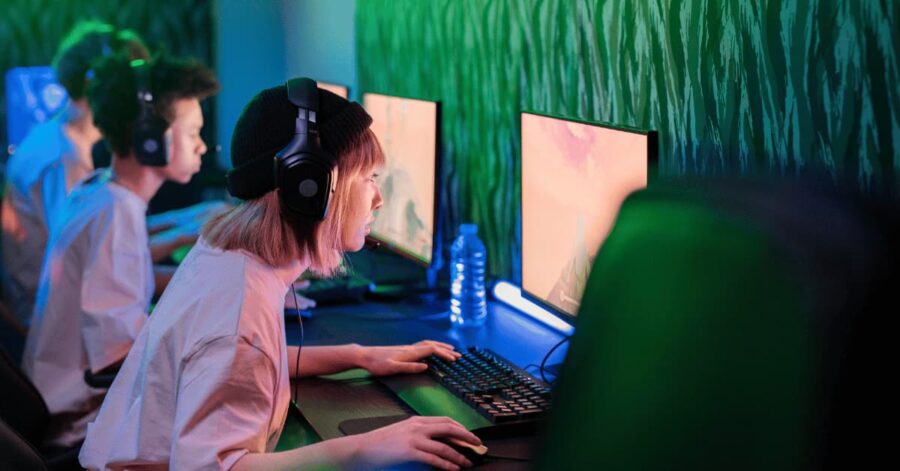
Prevalence and Impact of Problematic Online Gaming
Research conducted by Chandra et al. (2022) among college students found a significant prevalence of problematic online gaming behavior, strongly associated with poor mental well-being and depressive symptoms.
This association underscores the potential of online gaming to negatively impact students’ psychological health, highlighting the need for awareness and preventive strategies in educational settings.
Anxiety as a Predictor of IGD
A study by Huang et al. (2022) investigated the impact of anxiety on internet gaming disorder among children and adolescents in China, finding that anxiety, particularly physiological anxiety, social concerns, and sensitivity, were significant predictors of IGD.
This research suggests that interventions aimed at addressing anxiety and enhancing social skills may be effective in reducing the incidence and impact of IGD.

D. Addressing Online Gaming and Social Anxiety
The insights from these studies emphasize the intertwined nature of online gaming and social anxiety, pointing to the necessity of a holistic approach in treatment and support.
Addressing the underlying emotional distress, enhancing social skills, and fostering healthy gaming habits are key components of this approach.
For individuals struggling with these issues, seeking professional help can provide the support needed to navigate the challenges posed by social anxiety and IGD.
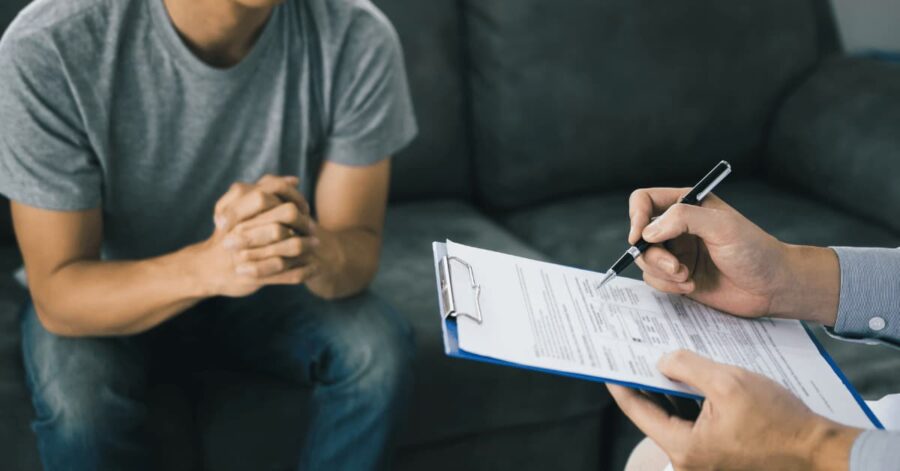
Treatment for Social Anxiety: Exploring Your Options
Social anxiety can be a challenging condition, but it’s important to remember that it’s also a treatable one.
Effective treatment can significantly improve quality of life, and there are several options available depending on individual needs and preferences.
These options include therapy, medication, group support, self-help strategies, or often, a combination of these approaches.
Therapy
Numerous therapeutic approaches have proven effective in addressing social anxiety, each providing distinct strategies for symptom management and enhancing overall well-being.
While cognitive behavioral therapy is widely recognized for its effectiveness, other approaches such as psychodynamic therapy, humanistic therapy, and schema therapy also offer valuable perspectives and techniques.
For a comprehensive exploration of these and other therapeutic options, we invite you to read our detailed guide on therapy for social anxiety by clicking here.

Medication
For some people, medication can be a helpful part of treatment. Antidepressants, anti-anxiety medications, and beta-blockers are commonly prescribed to help manage the symptoms of social anxiety.
It’s crucial to discuss the potential benefits and side effects with a healthcare provider. You can click here to read our guide on the pharmacological treatment options for social anxiety.
Group Support
Joining a support group can provide a sense of community and belonging. Sharing experiences and strategies with others who understand what you’re going through can be incredibly validating and helpful.
In the case of internet gaming disorder and social anxiety, online communities may be a good start. However, getting out and meeting people in similar situations in real life can be therapeutic in itself.
You can click here to read our guide on group therapy for social anxiety.

Self-Help
There are also numerous self-help strategies and resources that can complement formal treatment.
These include mindfulness exercises, stress management techniques, and books or online courses designed to help individuals understand and manage their anxiety.
Overcome Your Social Anxiety With Our eBook
Another great option to proactively work on your social anxiety is our ebook “Conquering Social Anxiety: A Practical Self-Help Guide“. It is packed with actionable exercises derived from Cognitive Behavioral Therapy (CBT), Acceptance and Commitment Therapy (ACT), and Metacognitive Therapy.
Designed for instant download, this guide empowers you with the techniques needed to manage social anxiety effectively on your own terms.
Embracing Online Therapy with BetterHelp
In today’s digital age, online therapy has emerged as a convenient and effective option for many, especially for those who are already comfortable navigating online spaces, such as gamers.
BetterHelp is a leading platform that provides access to licensed therapists through the internet, allowing you to receive support from the comfort of your own home.
We’ve partnered with BetterHelp to offer our readers a special opportunity: sign up through and you’ll receive a 50% discount on your first month of therapy.
E. Lifestyle Adjustments and Practical Tips
Beyond the therapeutic strategies previously discussed, here are several tips to help you cultivate healthier gaming habits:
1. Establish Healthy Gaming Limits: It’s important to set boundaries around gaming to prevent it from interfering with your daily life. Decide on specific times for gaming that don’t conflict with work, sleep, or social activities. Use apps or tools to monitor your gaming time to ensure you stick to these limits.
2. Create a Balanced Routine: Incorporate a variety of activities into your daily routine to avoid excessive gaming. This can include physical exercise, hobbies, spending time with friends and family, and relaxation techniques. A balanced routine helps reduce the reliance on gaming for stress relief or social interaction.

3. Develop Offline Social Skills: While online interactions can be a significant aspect of social life, especially for gamers, it’s beneficial to cultivate social skills in the real world. This can be achieved through joining clubs, classes, or groups that align with your interests, providing opportunities to meet new people and build confidence in social settings.
4. Practice Mindfulness and Relaxation: Mindfulness exercises, such as meditation, deep breathing, and yoga, can be effective in managing anxiety and reducing the urge to escape into gaming. These practices promote a state of calm and present-mindedness, helping you to cope with stress in healthier ways.
5. Engage in Physical Activity: Regular physical activity is a powerful tool for reducing symptoms of anxiety and depression. Exercise releases endorphins, which have natural stress-relieving properties. Find an activity you enjoy, whether it’s walking, cycling, swimming, or team sports, and make it a part of your routine.

6. Prioritize Sleep: Good sleep hygiene is essential for mental health. Lack of sleep can exacerbate anxiety and make it harder to manage gaming habits. Establish a regular sleep schedule, create a relaxing bedtime routine, and ensure your bedroom is conducive to sleep.
7. Seek Social Support: Connecting with friends, family, or support groups can provide emotional support and reduce feelings of isolation. Sharing your experiences and challenges with others who understand can be incredibly validating and helpful.
8. Limit Screen Time Before Bed: Exposure to screens before bed can interfere with your sleep cycle. Try to avoid gaming, TV, and other screens at least an hour before bedtime to improve sleep quality.

9. Explore New Interests: Diversifying your interests can reduce the appeal of excessive gaming. Try new activities that can either be done alone or with others, such as cooking, reading, or learning a new skill. This can also help in finding new ways to connect with people offline.
10. Reflect on Your Gaming Habits: Regularly take time to reflect on your gaming habits and their impact on your life. Consider keeping a journal to track how much time you spend gaming, how it makes you feel, and any consequences it may have on your daily life. This can help you recognize patterns and make informed decisions about your gaming behavior.
Implementing these lifestyle adjustments and practical tips can significantly contribute to managing social anxiety and creating a healthier relationship with online gaming. Remember, small changes can lead to big improvements in your mental health and quality of life.

F. Conclusion
Navigating the complexities of social anxiety in the digital age, especially when intertwined with online gaming, can be challenging. However, understanding the relationship between these two aspects of modern life is the first step towards managing them effectively.
It’s important to remember that social anxiety and internet gaming disorder are both manageable with the right support and strategies.
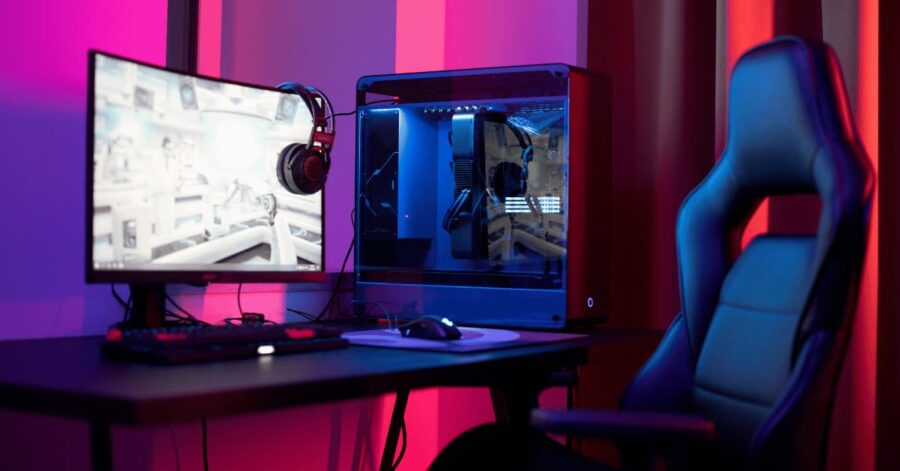
Whether it’s through professional therapy, medication, support groups, or self-help techniques, there are numerous paths to overcoming the obstacles these conditions may present.
Incorporating the practical tips discussed, such as establishing healthy gaming limits, engaging in physical activity, and developing offline social skills, can also play a significant role in your journey towards a healthier, more balanced life.
If you’re navigating the challenges of social anxiety and looking for comprehensive, accessible guidance, we invite you to join our free 7-day email course.
This course is designed to equip you with everything you need to know about social anxiety, from understanding its symptoms and causes to exploring effective treatment options and practical coping strategies.

American Psychiatric Association. (2013). Diagnostic and statistical manual of mental disorders (5th ed.). https://doi.org/10.1176/appi.books.9780890425596
Chandra, R., Kumar, S., Bahurupi, Y., & Rawat, V. S. (2022). The Association of Problematic Online Gaming Behavior With Mental Well-Being and Depressive Symptoms Among Students of Professional Colleges in Rishikesh. Cureus, 14(2), e22007. https://doi.org/10.7759/cureus.22007
Huang, X., Shi, H.-x., Li, H.-q., Guo, W.-j., Luo, D., & Xu, J.-j. (2022). Differential Effects of Anxiety on Internet Gaming Disorder: A Large-Scale Cross-Sectional Survey. Frontiers in Psychiatry, 12, 802513. https://doi.org/10.3389/fpsyt.2021.802513
Nasution, F. A., Effendy, E., & Amin, M. M. (2019). Internet Gaming Disorder (IGD): A Case Report of Social Anxiety. Open Access Macedonian Journal of Medical Sciences, 7(16), 2664-2666. https://doi.org/10.3889/oamjms.2019.398
Wang, Y., Liu, B., Zhang, L., & Zhang, P. (2022). Anxiety, Depression, and Stress Are Associated With Internet Gaming Disorder During COVID-19: Fear of Missing Out as a Mediator. Frontiers in Psychiatry, 13, 827519. https://doi.org/10.3389/fpsyt.2022.827519
World Health Organization. (2019). International Classification of Diseases for Mortality and Morbidity Statistics (11th Revision). https://icd.who.int/browse11/l-m/en
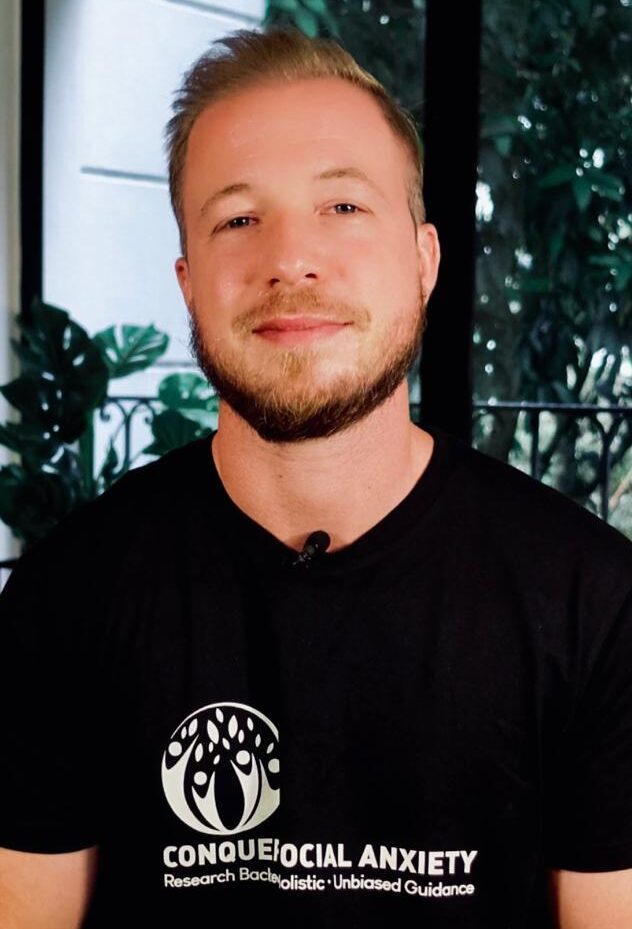
About the Author: Martin Stork
Martin is a professional psychologist with a background in physical therapy. He has organized and led various support groups for people with social anxiety in Washington, DC and Buenos Aires, Argentina. He is the founder of Conquer Social Anxiety Ltd, where he operates as a writer, therapist and director. You can click here to find out more about Martin.
